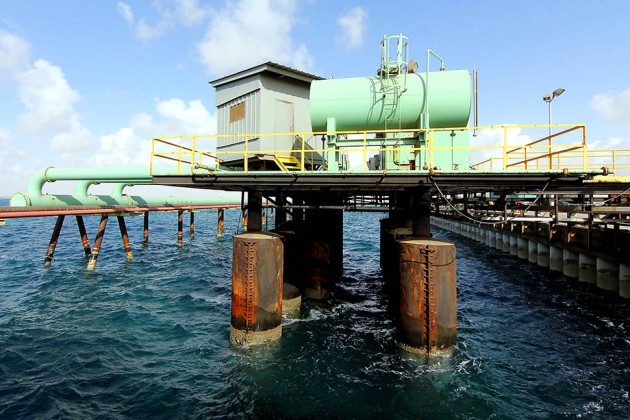The current period of falling commodity prices have had far-reaching repercussions on resource-rich developing markets. Since mid-2014, when the price of oil stood approximately at 100 dollars per barrel, oil prices fell to less than half of it at the beginning of this year. This is also a 40-percent decline from the decade-long average of 80 dollars. Resource-rich countries, whose budgets often heavily depend on the revenue from a single commodity, are therefore suffering a lot these days.
According to the United National Conference on Trade and Development (UNCTAD), in the 2012-2013 period, 94 developing countries relied on commodities for more than 60 percent of their export revenues and 63 of them were labelled as “extremely commodity dependent” with more than 80 percent of their export earnings. During the boom days, the value of commodity exports soared to $3.2 trillion in the 2012-2013 period from $2 trillion during 2009-2010 mostly thanks to higher prices, which gives us quite a good idea of the scale of revenue loss when the prices suddenly go in the opposite direction.
In the 1980s, Nigeria enjoyed a fantastic oil boom but unfortunately the government did very little to convert the money and potential to something tangible and sustainable. The cash was wasted on senseless projects saturated with corruption. When the oil prices crashed in 1986, not only the country’s state budget suffered immensely but also banks did not want to continue lending. Inevitably, the main victim of this “adventure” was the Nigerian people. The “big oil – little oil” switch approximately halved their living standards.
However, poverty is not the only danger that the loss of revenues from commodity exports brings on. Slumping commodity prices may in fact make democracy malfunction while also jeopardizing economic and political stability across the developing world. Democratic mechanisms determine how the power is achieved but also how it is used. However, both of these two sets of rules are undermined by resource rents.
The impact of commodity prices on political events is well documented in economic history. There is evidence that commodity price cycles coincide with major political, economic and diplomatic changes. Some economic historians point out to the last big super-cycle, which started in the 1960s, peaked in the 1970s, and crashed in the 1980s – the life cycle that also brought about the Nigerian oil boom and subsequent fall. The consequences of the cycle were, however, visible across the globe – starting with the wave of defaults in Latin American via the collapse of the Soviet Union to the political pressures in the Middle East. It is also when the term “oil democracy” slowly started to become a reality.
Although it would be very daring to draw any comparisons of the 1980s with the current international developments, it is safe to say that following the crash in commodity prices, the overall economic performance of commodity rich countries have deteriorated while their public debt has risen. The space for manoeuvring for their fiscal policy is also getting smaller. Although resource-rich countries have been accustomed to the fact that they do have to live with volatility, economic activity in many developing countries is increasingly linked to the extraction of oil, gas and mineral resources. Therefore, major changes in prices will have serious impact on jobs and income redistribution, which can – yet again – be politically disruptive.
Living a life of a commodity-rich country has always been defined by a greater degree of uncertainty in many areas. However, despite the far-reaching repercussions that volatile commodity prices have brought already so many times, there seems to be little will to make a good use of the commodity booms and diversify the underlying structure of the commodity-dependent economies. Yet, keeping in mind that the shaky commodity price cycle affects not only the domestic economies but also broadly defined democratic values and mainly stability, the West can find many reasons to support economic diversification efforts and sound commodity trade rules on the global stage – if only to help stabilize its increasingly unstable and perhaps also less and less democratic neighbourhood.




